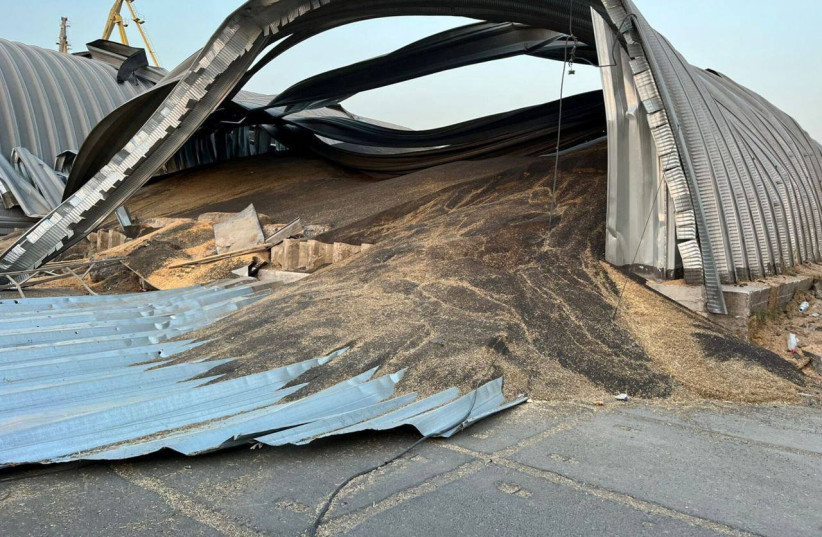Russia launched a 3 1/2-hour drone attack on the southern parts of the Odesa region early on Sunday, hitting a Danube River port infrastructure and injuring at least two people, Kyiv said.
Ukraine's air defense systems shot down 22 of the 25 Iranian-made Shahed drones that Russia launched on Odesa in the early Sunday hours, Ukraine's Air Force said on the Telegram messaging app.
Sunday's attack took place the day before Russian President Vladimir Putin and his Turkish counterpart Tayyip Erdogan are due to hold talks in the Russian Black Sea resort of Sochi. Turkey has been pressing to revive the grain deal.
Ukraine's South Military Command said on social media at least two civilians were injured in the attack on what it said was the "civil infrastructure of the Danube".
The Danube has become Ukraine's main route for exporting grain since the collapse of a UN-brokered deal in July that had allowed Kyiv to ship its grain via the Black Sea.
Ukrainian military shared few details
There was no detail on which port facility was hit. The military said a fire that resulted from the attack at the facility was quickly extinguished.

Some Ukrainian media reported blasts in the Reni port, one of the two major ports on the Danube that Ukraine operates. There was no immediate comment from Russia.
The Russian Defence Ministry was quoted by Interfax as saying that a group of Russian drones successfully struck fuel depots at the Reni port used by the Ukrainian military.
Reuters could not independently verify the reports.
Reni and Izmail have been repeatedly attacked by Russian drones in recent weeks.
"Russian terrorists continue to attack port infrastructure in the hope of provoking a food crisis and famine in the world," the Ukrainian president's chief of staff Andriy Yermak wrote on Telegram.
He posted a photo of a firefighter directing water at the burning ruins of concrete structures.
The Black Sea grain deal, reached in July 2022, aimed to alleviate a global food crisis. Ukraine is a major producer of grains and oilseeds and the interruption to its exports after the outbreak of war in February last year pushed global food prices to record highs.
Russia has complained that under the deal its own food and fertilizer exports faced obstacles and that not enough Ukrainian grain was going to countries in need.
